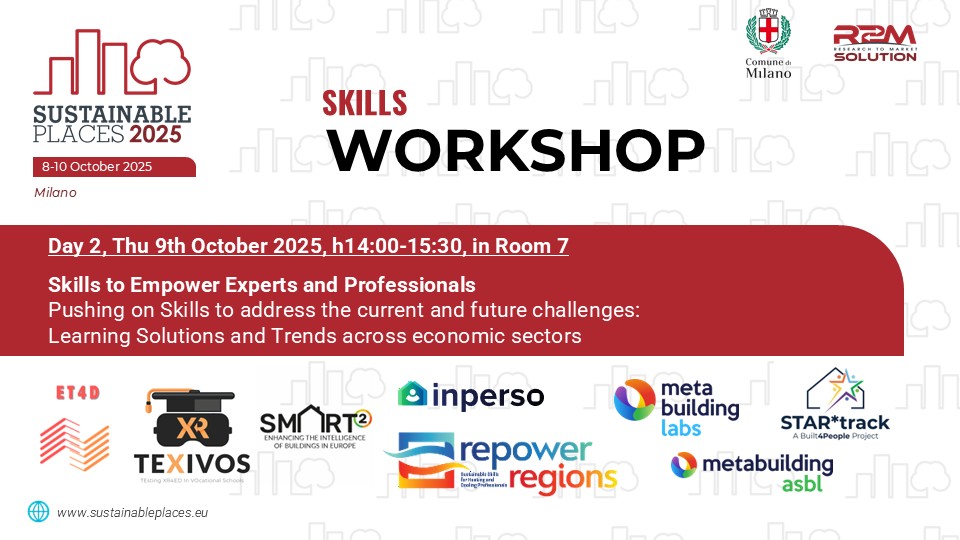Pushing on skills to address the current and future challenges: Learning solutions and trends across economic sectors

Europe is currently facing, among other challenges, the dual transition of its economy and society towards digitalisation and sustainability. At the same time, a skills gap has been identified across countries and generations. In particular, professionals and workers in several sectors — such as construction, building, and manufacturing — are not yet fully equipped to manage and support these complex transitions. Given the importance of this issue on the European agenda, the workshop focused on skills, training methodologies, solutions, and emerging trends. It was founded on the strong belief that investing in skills — both their delivery and acquisition — is one of the most powerful tools to tackle the major challenges ahead, with a direct impact on the economy and society as a whole.
Young generations, more than ever, benefited from innovative approaches and tools that enhanced engagement and knowledge retention. For the first time, the workshop showcased a hybrid learning environment, where traditional classroom settings were combined with virtual reality–based modules. The initiative proved equally relevant for adults. Today’s professionals and workforce face constant challenges, making continued investment in upskilling and reskilling essential. Since the job market is demanding, preparedness remains key. The workshop highlighted successful examples from the construction and building sector, demonstrating that new competencies can be acquired effectively even with limited time available.
The workshop also featured a panel of speakers presenting tangible results from EU-funded projects and other initiatives. Discussions covered skills assessment and competence needs, innovative training design, lessons learned, current learning environments (in-person, online, and hybrid with VR integration), and connections to the job market, including support through AI-based tools. Transferring knowledge and competencies across all age groups — from youth to adults, particularly professionals and workers — has become more critical than ever throughout the entire lifespan. Society has evolved significantly, and stakeholders of the education ecosystem at large are now called to maximise the potential of the latest trends and solutions to sustain and amplify the valuable contributions they already make.
For this reason, the workshop welcomed a diverse audience, including academics, trainers, representatives of TVET centres, associations, HR departments, and both public and private employment agencies.
